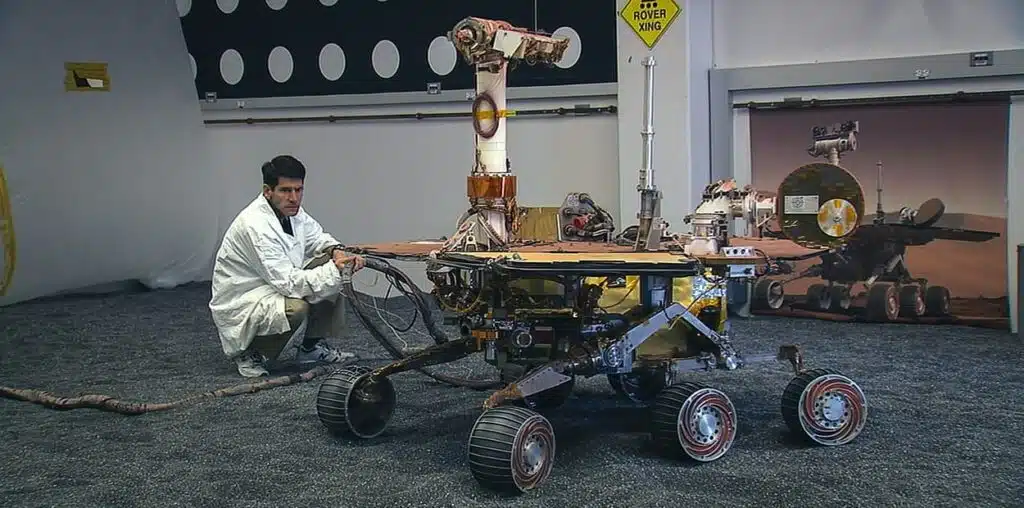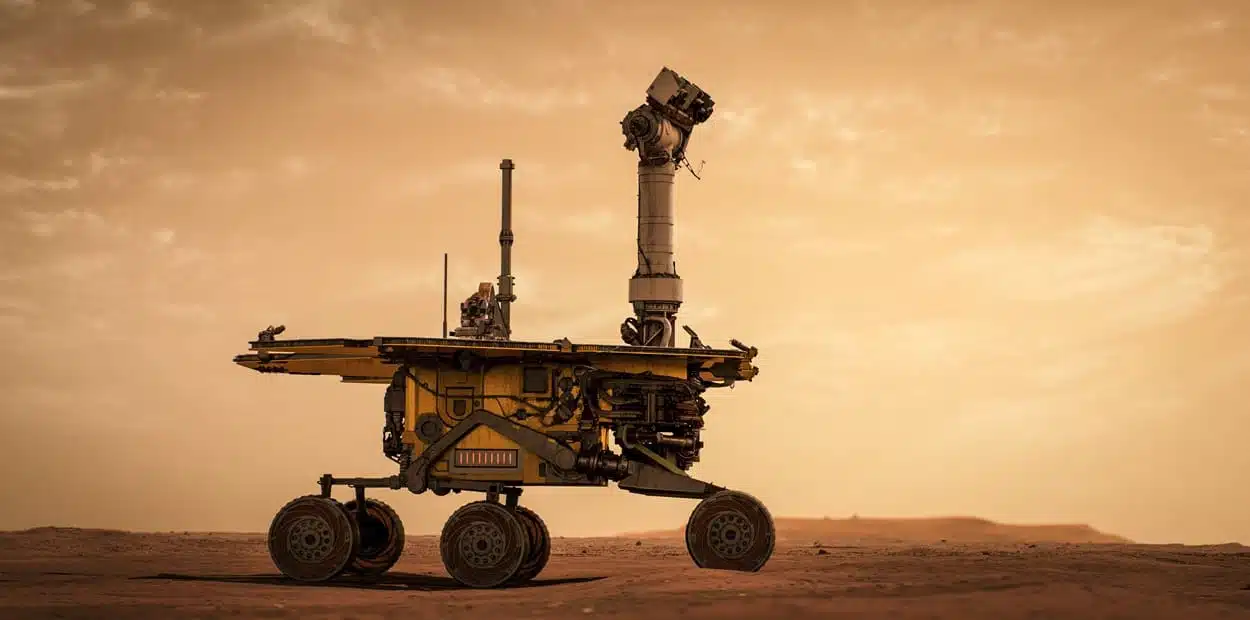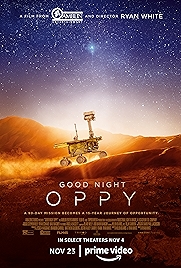Good Night Oppy tells the story of two robot explorers sent to Mars in 2003 by Nasa. The idea was for them to drive about collecting samples of rock and soil, with the ultimate aim of proving that what look like dried up rivers from Earth are in fact just what they look like, old water courses. Life on Mars, or the possibility of life on Mars, was what it was all about.
The explorers were named Opportunity (nickname Oppy) and Spirit, and the engineers who designed them put a “warrantee” life on them of about 90 days. What with the low temperatures, the dust and the rigours of getting there and landing, not much was expected beyond the three-month mark, after which every extra day was a bonus. In the event, though Spirit conked out first, she lasted 1,900 days until one day she powered down to preserve battery power and never came back online. Oppy continued on until, 15 years into a mission designed only to last three months, she finally gave out, the victim of a massive dust storm.
Good Night Oppy is the Star Trek offer in documentary format. Boldly going is a given, and there is much evidence of technological wizardry and can-do spirit. But plenty of Shatner-esque emoting also as the various scientists talk about the building of the two robots, their deployment to Mars and then the remarkable mission which went on and on and remarkably on. There are genuine tears shed for these two collections of metal, plastic and software and when Oppy gets towards the end of her life it’s notable how often these logical, engineering-minded techies talk in terms of “old age”, “grey hair”, “memory loss” and “arthritis”. People just bond – to each other, the project, the concept of space exploration and even the machines doing the exploring on their behalf.
It’s very much like a Nasa documentary from the Apollo era – ingenuity, smart folks burning with zeal, but also everyday Americans who have kids and like to kick back with a cocktail after a day at work. Unlike the old Nasa docs from the Apollo era, it’s a much, much more noticeably diverse crowd. Those shots of Mission Control back in the late 1960s, where everyone was a white male with a buzz cut, a short sleeved white shirt with a pen in his pocket, black spectacles obligatory, have now given way to a much broader spectrum of people – one started life in Ghana, another in India, there are plenty of women.

Angela Bassett gives it all an authoritative voiceoever but in the main the talking heads do most of the work, putting a human face on a story that’s all about the unexpectedly human face of robotic exploration. Spirit, it turns out, even in the planning and development stage, was the one who’d go wrong most often. So it was in a way no surprise that she was the first to run into trouble – one of her six wheels broke, making her the Martian equivalent of the shopping trolley with the wonky wheel. And the solution? Exactly the same as dealing with a shopping trolley with a wonky wheel – drive her backwards.
It is in a way a story of massive luck. No one anticipated much of a mission beyond the 90-day mark. The dust storms on Mars would eventually occlude the solar panels and make them too dirty to convert sunlight to energy. But no one had reckoned on the “dust devils” that would rip past from time to time, effectively vacuuming the dust off the panels and leaving them as clean as a whistle.
A case of mission accomplished, both by the teams who sent the rovers to Mars and kept them there, operating at levels no one had really expected, and film-maker Ryan White, who serves the story up with a lot of heart, not too much technical abstraction and with a dedication to the Nasa project that is charmingly old-school in its gee-whizz fanboy enthusiasm.
.
Good Night Oppy – Get the whole trilogy at Amazon
I am an Amazon affiliate
© Steve Morrissey 2022

